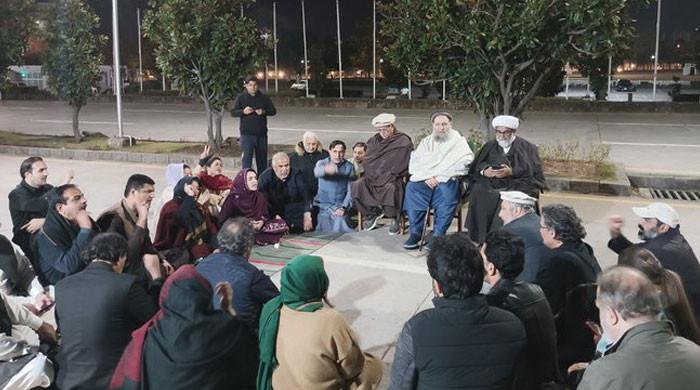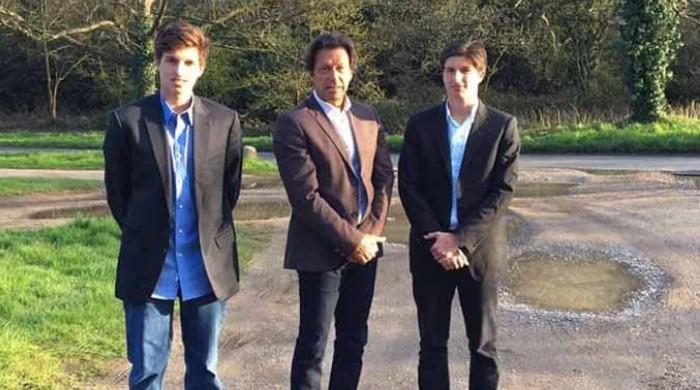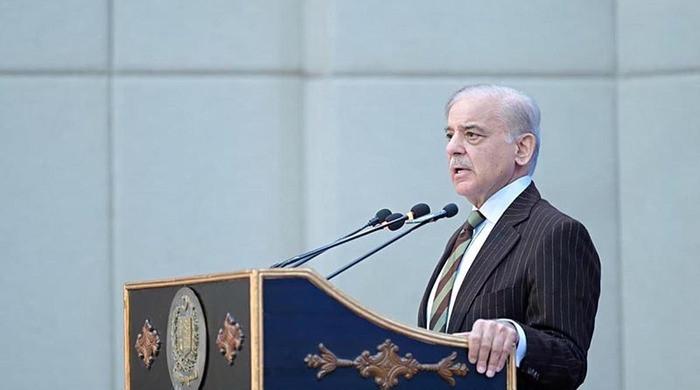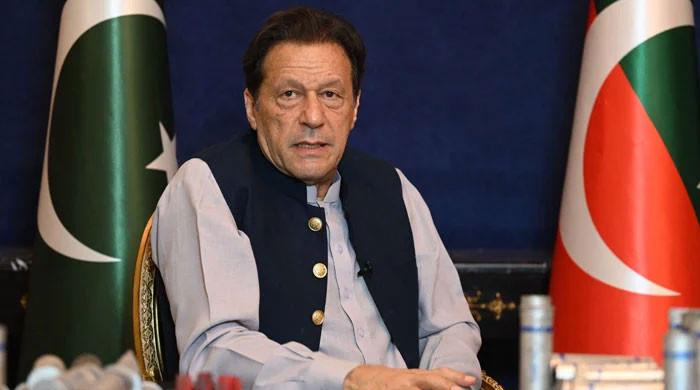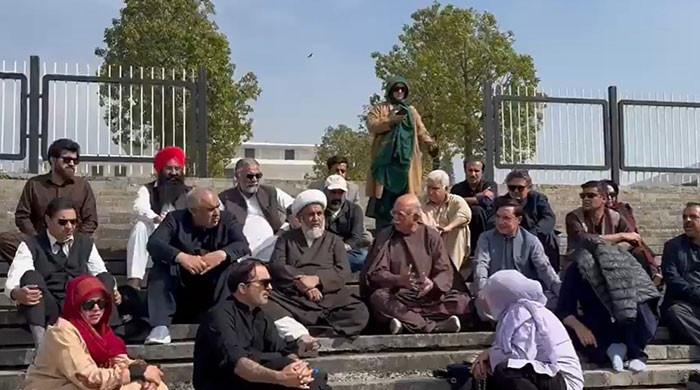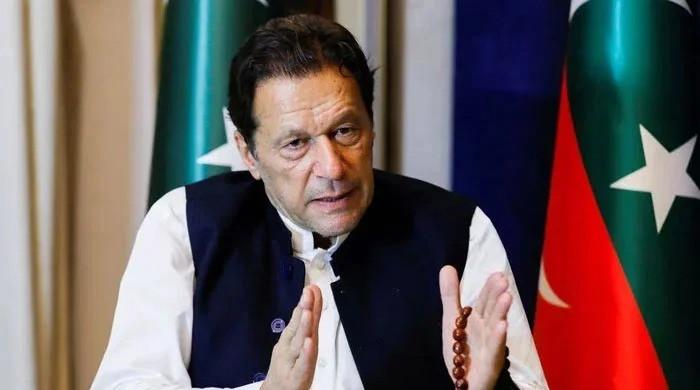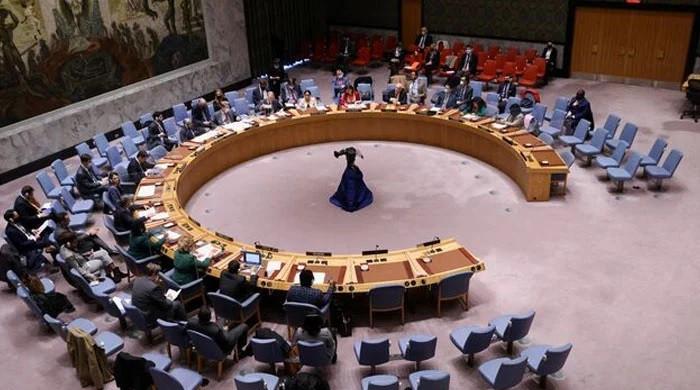What’s in Daily Mail’s defence in Shehbaz Sharif defamation case?
The Daily Mail, Mail Online and Mail on Sunday have also submitted a defence reply to Shehbaz Sharif’s son-in-law accused of money-laundering
March 01, 2022
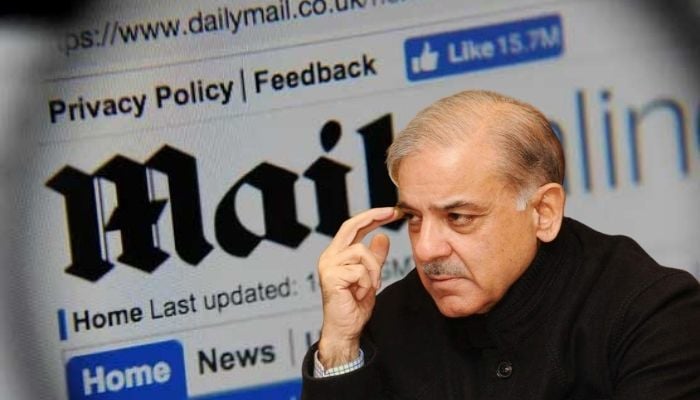
LONDON: The Associated Newspapers Limited (ANL) has submitted a defence to Shehbaz Sharif’s defamation case at the London High Court, relying mainly on witnesses and bank transactions of Shehbaz Sharif and his family members for the period of around 10 years till 2018 that are also part of the National Accountability (NAB) reference against the former Punjab Chief Minister.
The Daily Mail, Mail Online and Mail on Sunday publishers have also submitted a defence reply to Shehbaz Sharif’s son-in-law, Imran Ali Yousaf, who was accused in the same article along with Shehbaz Sharif of money-laundering and corruption. The ANL’s evidence is detailed in nature, and a source close to the ANL said that its evidence is "more than what’s contained in the NAB reference" and that the "evidence is based on primary evidence".
However, all the names, allegations, and evidence are similar in nature and content to what the NAB Reference constitutes. The ANL submitted its defence on Monday, almost two weeks after Westminster Magistrates’ Court ordered the release of a bundle of National Crime Agency investigations into Shehbaz Sharif, demonstrating that money-laundering and criminal conduct were not proven against Shehbaz Sharif and his son, Suleman Sharif, during the two-year long investigation over the same allegations on which the NCA relied while obtaining Assets Freezing Orders (AFO) from the court at the end of 2019 and that form the core of the NAB Reference.
In the Mail on Sunday, it was alleged on July 14, 2019 that Sharif and his son-in-law were involved in money-laundering and stealing UK aid to Pakistan. The UK aid immediately issued a rebuttal stating that its money was not stolen, and Sharif and Yousuf announced that they would launch defamation cases against the publisher and the reporter. Around a year ago, Justice Nicklin at London's High Court determined that the allegations carried Chase Level 1 meaning and that the paper must produce evidence. The Mail took around five extensions and cited COVID restrictions as the reason for the delay in the submission of evidence.
The ANL evidence starts by discussing Shehbaz Sharif’s role as Chief Minister of Punjab and the executive authority he held over the government of Punjab and its resources.
Sticking to its original publication, the Mail evidence says during "his period as Chief Minister of Punjab between 2008 and 2018, tens of millions of pounds of laundered funds were received into bank accounts owned, operated and/or controlled by" Sharif and his family through their agents, companies or associates. It names Nusrat Shahbaz Sharif, Hamza Shahbaz Sharif, Suleman Shahbaz Sharif,Rabia Imran, Javeria Ali, and Tehmina Durrani.
The defence says that Fazal Dad Abbasi, who has worked for the Sharif Group of Companies since 1991, was a key person in the flow of these funds. Abbasi allegedly gave out large sums of cash from the premises of a property owned by the Sharif Group in Lahore, "in order to hide the original source of the said funds."
The ANL defence says that the "cash constituted the proceeds of unlawful and illicit activity" and that "from 2008 onwards, it included substantial sums of public money which had been embezzled from budgets, funds and projects under the control of the claimant in his capacity as Chief Minister of Punjab".
The ANL defence says that Fazal Dad Abbasi handed this cash to Masroor Anwar, Mohammad Shoaib Qamar, and Qasim Quyyum, who then routed this cash to and through various money exchange businesses in Pakistan, the UK, and the UAE (including Usman International Money Exchange, a currency exchange operated by Shahid Rafique and his cousin, Aftab Mehmood, in the United Kingdom). Quyyum himself employed a number of cash couriers (or ‘cash boys’), including Muhammad Rafique, Manzoor Ahmad, and Mumtaz Ahmad, says the ANL defence, adding that these funds were controlled by Shehbaz Sharif and his family.
That's what it said: Remittances came from "ghost remitters," who used other people's names to send them.
The ANL defence says that between 2005 and 2018, Shehbaz Sharif’s family received foreign remittances from "fictitious sources totalling at least Pakistani Rupees (‘PKR’) 1,221.478m, or around £6,743,914.36.
It contains information about various remittances sent from abroad as well as money deposited internally by Muhammad Anjum on May 19, 2008; Younas Hussain Omar on April 21, 2010; Aftab Mehmood; Muhammad Sarwar; Muhammad Aurangzeb; Muhammad Qasim; Faisal Rasool; Saaqib Mughal; Roidar Khan; Khial Nawaz; Muhammad Anjum; Feroze Khan Abbasi; Muhammad Imran Fiaz; Muhammad Masoor Ahmed; Jibran Nafees; Nasar Ahmed; Muhammad Owais Arab; Maroof Hussain Siddiqi; Muhammad Nurul Alam; Mehboob Ali and several others.
The ANL defence says: "Records in Pakistan show that there are no individuals with names and dates of birth corresponding to those given to Muhammad Anjum and Younas Hussain Omar, Nasar Ahmed, and Muhammad Mansoor Ahmed, whose identities therefore appear to be entirely fictitious." Shahid Rafique and Aftab Mehmood, the owners of Usman International Exchange, have stated in sworn statements that (as was the case) all remittances sent from Usman International to the claimant’s immediate family were made under false or stolen identities" and that "Muhammad Aurangzeb has never sent any money to any member of the Sharif family" and "records in Pakistan show that there are no individuals with names and dates of birth corresponding to those given to Muhammad Sarwar, Faisal Rasool, and Saaqib Mughal. It is to be inferred from that fact and the general use of fake remitters that these identities too are entirely fictitious."
It says that when some remittances were made from Dubai, several people in whose names these payments were made were not there when the remittances were made.
It says: "Roidar Khan, Maroof Hussain Siddiqi, Feroze Khan Abbasi, Muhammad Imran Fiaz and Muhammad Qasim failed to respond when official call-up notices were issued by the National Accountability Bureau (the "NAB"), the Pakistan governmental agency charged with investigating corruption and economic terrorism and which has been investigating the claimant and his immediate family since 2017) and sent to the addresses given on the face of the remittances."
In references to all Sharif family members, the ANL defence alleges that the monies were transferred "under false or stolen identities" and that this would be ANL’s defence that "if these individuals existed, they did not send remittances to Hamza or any other member of the Sharif family on the said occasions".
It says that between 2005 and 2014, and particularly after June 2008 when Shehbaz Sharif was re-elected as Chief Minister of Punjab, "Suleman became a prolific recipient of foreign remittances" and allegedly received "127 foreign remittances totalling PKR 1,044.086m during this period (or £7,774,570.90 along with a further PKR 375.695m (£2,797,535)) from 49 foreign pay orders".
It says: "Only PKR 862.572m of these remittances were declared in income tax returns and wealth statements filed by Suleman for the relevant periods."
The NCA defence also alleges that Shehbaz Sharif and his family also received fictitious foreign remittances from front companies acting on his and his family’s behalf.
It says that Good Nature Trading Company Pvt Ltd; Unitas Steel Pvt Ltd; Waqar Trading Company; Mushtaq & Co have employees who worked for Shehbaz Sharif in his public office and received remittances in their names, and that members of the Shehbaz Sharif family and Sharif himself "benefited very substantially from the receipt of the funds which were laundered via foreign remittances in the circumstances" and "they enjoyed very substantial increases in the levels of assets which were held in their respective names, while also being able to accommodate marked increases in their expenditure, including personal spending and gifts".
It must be mentioned that the NCA cleared both Shehbaz Sharif and his son over the same allegation after a two-year long investigation in relation to the same sale, and the NCA relied heavily on the Daily Mail’s article as well as NAB’s reference.
The defence says that "the enormous sums in fictitious foreign remittances from which the claimant and his immediate family benefited represented the proceeds of unlawfully acquired monies" and "the claimant knew and authorised the scheme by which the funds were laundered".
The ANL’s defence concludes by saying that as a result of the publication of the article, no serious harm was caused to Shehbaz Sharif and there was no damage to his reputation. It says that every effort was made to get the full version of the Sharif family members and their associates.
The ANL defence refers to Shehbaz Sharif’s purchase of four London properties with help from PTI donor Aneel Mussarat and alleges that "such mortgages would not have been maintainable by reference to the claimant’s legitimate sources of income". It raises questions about Shehbaz Sharif’s decision to transfer the proceeds of the sale of Flat 2, 30 Upper Berkeley Street, London, to give the sale proceeds to Suleman Sharif.




